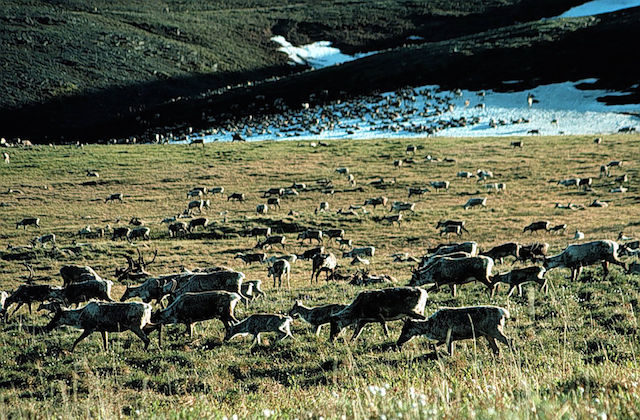Environmentalists have long been concerned that the Arctic National Wildlife Refuge (ANWR) would be used for oil drilling. Those fears multiplied when Donald Trump was elected to the presidency, and now there is a very real possibility that it could happen soon, threatening wildlife and the socioeconomic survival of Native communities.
On Tuesday (September 19), the Senate Energy and Natural Resources Committee voted to confirm Joe Balash, a drilling advocate, as assistant secretary for land and minerals management in the Department of the Interior. It was nearly unanimous in his favor, with Senator Al Franken (D-Minn) casting the only opposing vote.
According to an article published yesterday (September 19) in ThinkProgress, former Alaska official Balash “has been strongly in favor of developing Alaska’s natural gas and oil resources and in favor of transferring public lands to Alaska control so the state could offer oil and gas leases.” If he receives full Senate confirmation, Balash will oversee the Bureau of Land Management (BLM), which includes control of all federal lands and waters. Writes ThinkProgress:
“There’s no doubt that, if confirmed, he will be advocating alongside a growing list of this administration’s political appointees who seem dead set on drilling in the Arctic Refuge—despite the law and the will of the American people,” Kristin Miller, interim executive director of the Alaska Wilderness League, said in a statement.
And, in fact, when the Secretary Ryan Zinke announced Balash’s nomination, the oil and gas industry—in an Interior Department press release—applauded the move.
ANWR contains an estimated four to 12 billion barrels of recoverable oil. The area is also rich in wildlife, including polar bears and caribou living in a wilderness that is relatively unchanged from how it was 10,000 years ago—making it a priority for environmentalists. In addition, the region is home to a number of Native Alaskan tribes, such as the Gwich’in, who depend on the caribou as a major food source.
“For us, protecting this place is a matter of physical, spiritual and cultural survival,” Bernadette Dementieff, executive director of the Gwich’in Steering Committee, told ThinkProgress. “It is our basic human right to continue to feed our families and practice our traditional way of life. Oil exploration in the Arctic Refuge’s coastal plain would be a human rights violation. Our identity is not negotiable.”
Balash’s committee confirmation is not the only development that points to the likelihood of drilling. As The Washington Post reported on September 15, the Department of the Interior is preparing a draft rule that would allow for seismic testing in ANWR—the first step to determine if oil and gas drilling is feasible.
